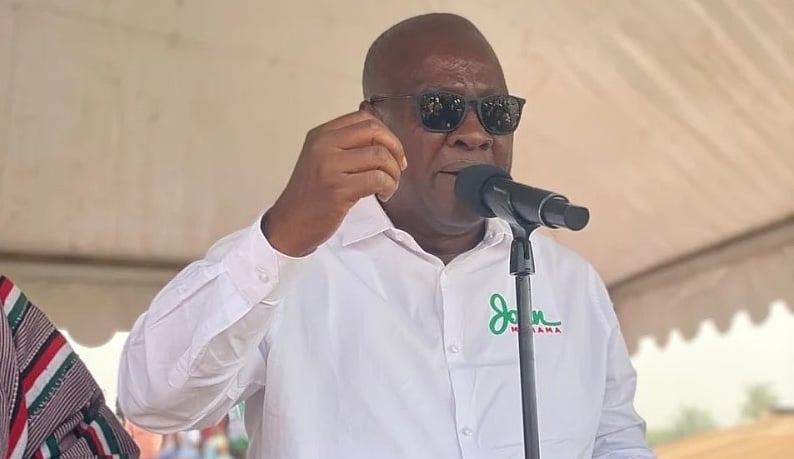President John Dramani Mahama has unveiled a comprehensive suite of initiatives specifically designed to uplift and empower Zongo communities in Ghana. These initiatives span across various sectors, including religious freedom, education, economic empowerment, and access to Hajj, reflecting a holistic approach to development and inclusion. The core of these initiatives rests upon the recognition of Zongo communities as integral components of Ghanaian society and the need to address historical inequities and foster a sense of belonging and opportunity.
One of the key highlights of President Mahama’s plan is the amendment of the Public Holidays Act of 2001 to include Eid al-Fitr as a full public holiday. This move acknowledges the significant Muslim population in Ghana and respects their religious observances. By granting two full holidays for the “Salah festivities,” Muslims are no longer forced to choose between fulfilling their religious obligations and meeting professional or educational commitments. This initiative aims to solidify the recognition of the Muslim faith as an essential element of Ghana’s national identity. The addition of this holiday underscores the commitment to religious inclusivity and the importance of respecting the diverse cultural and religious tapestry of the nation.
A further demonstration of President Mahama’s commitment to religious freedom is his unwavering support for Muslim women’s right to wear the hijab without fear of discrimination or intimidation. This stance aligns with constitutional guarantees of religious expression and aims to create an environment where Muslim women can fully participate in education and professional life. By protecting this fundamental right, President Mahama’s administration seeks to eliminate barriers that prevent Muslim women from achieving their full potential and contributing meaningfully to Ghanaian society. This commitment extends beyond mere legal protection to fostering a societal atmosphere of acceptance and respect.
President Mahama’s vision for Zongo communities extends beyond religious freedom to encompass substantial improvements in educational opportunities. Recognizing that access to quality education is a cornerstone of socio-economic advancement, he has pledged to build additional Islamic secondary schools and provide scholarships for students from deprived communities, particularly in fields such as medicine, law, engineering, and information and communications technology (ICT). These initiatives aim to create pathways for Zongo youth to pursue higher education and acquire the skills necessary to compete in a rapidly evolving global economy. The focus on STEM fields reflects a forward-thinking approach to equipping young people with the tools they need to drive innovation and contribute to national development. By leveling the playing field and providing targeted support, these educational initiatives strive to create a new generation of Zongo professionals who can contribute to building a more prosperous and equitable Ghana.
Recognizing that education alone is insufficient to address the complex challenges faced by Zongo communities, President Mahama has also prioritized economic empowerment. The proposed Soyaaya Fund, a micro-credit scheme, is designed to inject capital into these communities, supporting entrepreneurship, business start-ups, and training in value addition. This initiative seeks to harness the entrepreneurial spirit within Zongo communities and provide the resources and skills necessary to transform economically deprived areas into vibrant centers of commerce and innovation. By providing access to capital and training, the Soyaaya Fund aims to create sustainable economic opportunities and break the cycle of poverty. This initiative recognizes the importance of empowering individuals to become agents of their own economic development and contribute to the overall growth of their communities.
In further support of economic empowerment within Zongo communities, President Mahama has initiated discussions with the Bank of Ghana to introduce Islamic banking instruments into the national financial system. This progressive move aims to enhance financial inclusion by providing Muslims with banking services that align with their religious principles. By catering to the specific financial needs of the Muslim community, this initiative seeks to foster greater economic participation and prosperity. The introduction of Islamic banking instruments recognizes the importance of providing culturally sensitive financial services that cater to the diverse needs of the population, thereby promoting greater financial inclusion and economic opportunity.
Beyond economic empowerment, President Mahama has also demonstrated a commitment to facilitating the Hajj pilgrimage, a deeply significant religious obligation for Muslims. Recognizing the substantial financial burden associated with the Hajj, he has established a dedicated task force to explore ways to reduce costs and make the pilgrimage more accessible to Ghanaian Muslims. This initiative builds upon previous infrastructure developments, such as the Hajj Village and the Tamale International Airport, which have already significantly improved the travel experience for pilgrims. By taking concrete steps to ease the financial burden of the Hajj, President Mahama’s administration demonstrates its sensitivity to the spiritual needs of the Muslim community and its commitment to supporting their religious practices.
Underlying all these initiatives is President Mahama’s unwavering commitment to building a peaceful and inclusive Ghana. He has called upon the Muslim community to support his administration with prayers and has reaffirmed his commitment to servant leadership, emphasizing his dedication to serving all citizens, irrespective of their background or affiliation. His vision is to create a Ghana where every individual, regardless of their origin or circumstances, has the opportunity to thrive in a just, inclusive, and prosperous nation. These initiatives represent a significant step towards realizing that vision by addressing specific needs and aspirations within Zongo communities and ensuring their full participation in the national development agenda. The emphasis on inclusivity and equitable development underscores the importance of creating a society where all citizens feel valued, respected, and empowered to reach their full potential.














